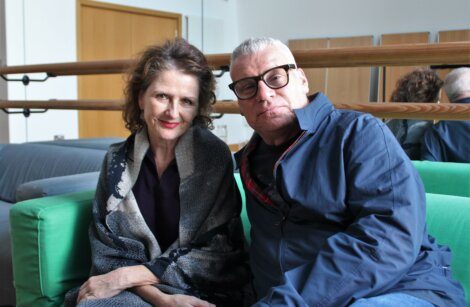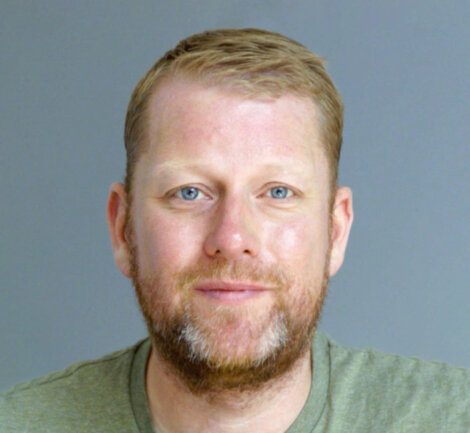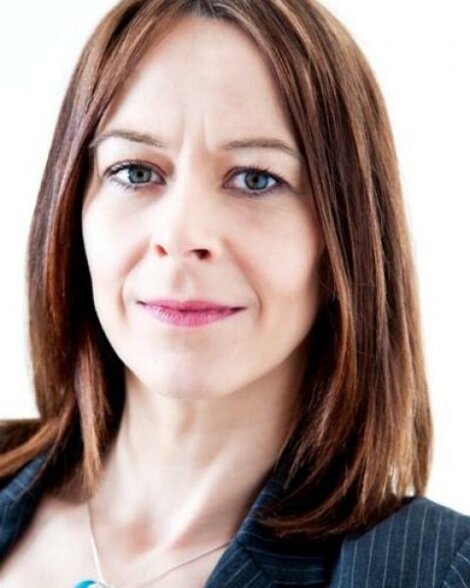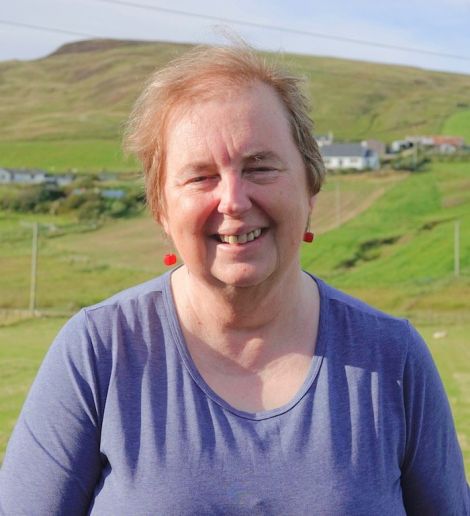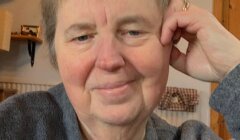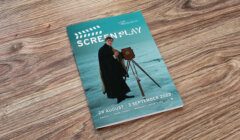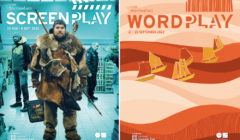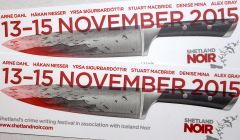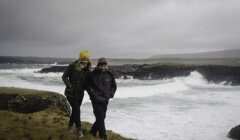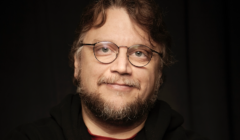Arts / Screenplay ‘rooted in the community’ as film festival returns
Shetland’s film festival is back and the hybrid event has seen in-person appearances mixed with virtual cameos
SCREENPLAY remains a “community driven” event, according to curator Mark Kermode as Shetland’s film festival enjoys another successful outing.
A scaled-down version of the festival ran last year with largely virtual guests, and Kermode and fellow curator Linda Ruth Williams said it is “fantastic” to be back in Shetland – with more in-person appearances this time around following the end of Covid restrictions.
The festival, based in Mareel, kicked off on Tuesday and it is due to wrap up on Sunday night (4 September).
Screenplay 2022 is still shorter than previous years, as we ease back into social events. Kermode stated they hoped they would be back at “full strength” next year.
Speaking to Shetland News on Friday afternoon, he added that what makes Screenplay so special is that it remains true to its roots: “Cannes Film Festival isn’t about Cannes, the Venice Film Festival isn’t about Venice.
“But Screenplay is all about Shetland and it’s rooted in the community. Every time we bring guests up, it’s the first thing they notice, and I think they’re taken aback by how much of a community driven festival it is.”
This year has both virtual and in-person events, and saw a successful return to the Screenplay Film Quiz.
Kermode called the process of choosing guests “completely chaotic”. They follow strands like Look North, Young People’s Films, while another theme was Extraordinary People.
They will choose documentaries and films that people will appreciate, choosing a mixture of crowd-pleasers and more obscure films.
However, the pair added that they always have guests who want to come to Shetland, and a list of people who want to return.
Kermode, a well-known film critic, said: “We always send an email with recommendations from other guests we’ve had to any potential guests, we’ve not had a single guest come to this festival who hasn’t wanted to come back.”
Become a member of Shetland News
Scottish director and producer Martyn Robertson is showing his first feature-length documentary Ride The Wave at Screenplay, and said: “Shetland’s always got a place in my heart because it’s the first place I tried to make a piece of film about real people, and real things. It went nowhere, but it was a learning experience.”
Robertson first visited Shetland in 1999. It was the first place he tried to create a documentary about.
He said: “I was at drama school in Glasgow, and at the weekends you could hire the film equipment out. So, I thought I’m going to take it out and try to make a film. My friend’s parents stayed here, so we decided to come up for a weekend and make a documentary about island life.”
Robertson added: “We didn’t have a clue what we were doing, but we had a fantastic time.” He also directed a film for Panasonic in 2019 in Shetland for Up Helly Aa.
Ride The Wave is a documentary centred around Ben Larg and his family on Tiree. Larg surfed competitively and was the under-18 Scottish surfing champion. Initially Robertson planned to do a documentary focused on Larg’s competition circuit, however the film took a drastic change halfway through.
Robertson said: “We thought we were making a film about a boy who would be the first Scot to represent the UK in the Tokyo Olympics in 2020.
“But, as with all good stories, they don’t work out quite in the way that you think. Our film twists in the middle and Ben changes his direction from competition surfing to big wave surfing. It becomes a story about Boy vs. Wave.”
Larg tries to ride one of the biggest and most dangerous cold-water waves in the world at Mullaghmore, Ireland and the documentary centres around his journey and his relationship with his parents–who are understandably very anxious about his change in direction. The documentary was shot over three years, and covers the surfer’s journey from a boy to a young adult.
Meanwhile, actor Kate Dickie (previously seen as Lysa Arryn in Game of Thrones, and The Witch) has come up to Shetland and already marvelled at the wonder of St Ninian’s Isle in a video posted to her Twitter.
She stars in Couple in a Hole, a feature film about a feral couple who live in a hole in the French woodland after being devastated by the death of their son.
Her character Karen is a grieving woman, and the role saw Dickie win a Scottish BAFTA for Best Actress. She went under both a physical and mental transformation for the role.
Dickie said: “Karen was in such a sad place, I disappeared down a rabbit hole with her and didn’t come out for quite a few months. It’s a very pure character in that she’s so grief stricken she won’t leave the hole, she won’t let her husband in. She’s pushing all life away. There was something about her that made it hard to let go of her after.”
During the film, Karen is bitten by a poisonous spider, which means her husband must leave to get her help. It centres around familial conflict and parental grief, and was received well by critics after its release in 2015.
Dickie added she used playlists to get into the mind of Karen, and that’s a technique she continues to use with all her characters. She said: “I use playlists to help me get into characters, what music she likes, mood playlists, and playlists for different scenes. Especially on a film set. There’s a lot of people around and I can be talkative, so I started listening to music to keep myself focused.”
For Dickie, the most important part of the work is when people can connect to her characters, and she was ‘honoured’ to be recognised for the role in Couple in a Hole.
Screenplay director Kathy Hubbard’s choice of the festival was a documentary called Young Plato, centred in a working-class community in Belfast with social deprivation and poverty.
A headteacher teaches young boys philosophical concepts to promote independent thinking, and challenge their own narratives.
Filmmaker Neasa Ní Chianáin was brought the idea from her co-director Declan McGrath, she said: “We had just finished another film called School Life, which was a long-term observational film set in a school about two inspirational teachers and Declan really liked that film, so our whole collaboration started there. Who wouldn’t want to know more about working class kids in Ardoyne learning about philosophy?”
Chianáin is doing a Q&A after the showing on Sunday, she discussed how essential philosophy is as a life tool in today’s society, and how learning about it at such a young age empowered these young boys: “So much stuff is being thrown at you, and you don’t know what to believe so I think it’s really critical that children learn very on to start thinking independently and listen to other people’s thoughts and processes as well to understand where other people are coming from. It’s the only way forward.”
Ardoyne is a working-class neighbourhood in northern Belfast that was often the spot of tension and issues during the long-standing Troubles in Northern Ireland between Protestants and Catholics.
Chianáin added: “They have a lot of social problems there, social deprivation, high suicide rates, drugs, and these children have to learn how to navigate their way through that. It’s always the teenage years that are the danger zone. It can literally make the difference between life and death.”
She thinks it is essential we remind ourselves that the purpose of education is focused on enhancing children’s lives: “Every adult you speak to has a story about an inspirational teacher who changed their lives. So celebrating inspirational teachers is a highly important thing to do.”
Screenplay wraps up on Sunday for another year with a final showing of Young Plato at 8.15pm. The full programme can be found online here.
Become a member of Shetland News
Shetland News is asking its many readers to consider paying for membership to get additional features and services: -
- Remove non-local ads;
- Bookmark posts to read later;
- Exclusive curated weekly newsletter;
- Hide membership messages;
- Comments open for discussion.
If you appreciate what we do and feel strongly about impartial local journalism, then please become a member of Shetland News by either making a single payment, or setting up a monthly, quarterly or yearly subscription.






